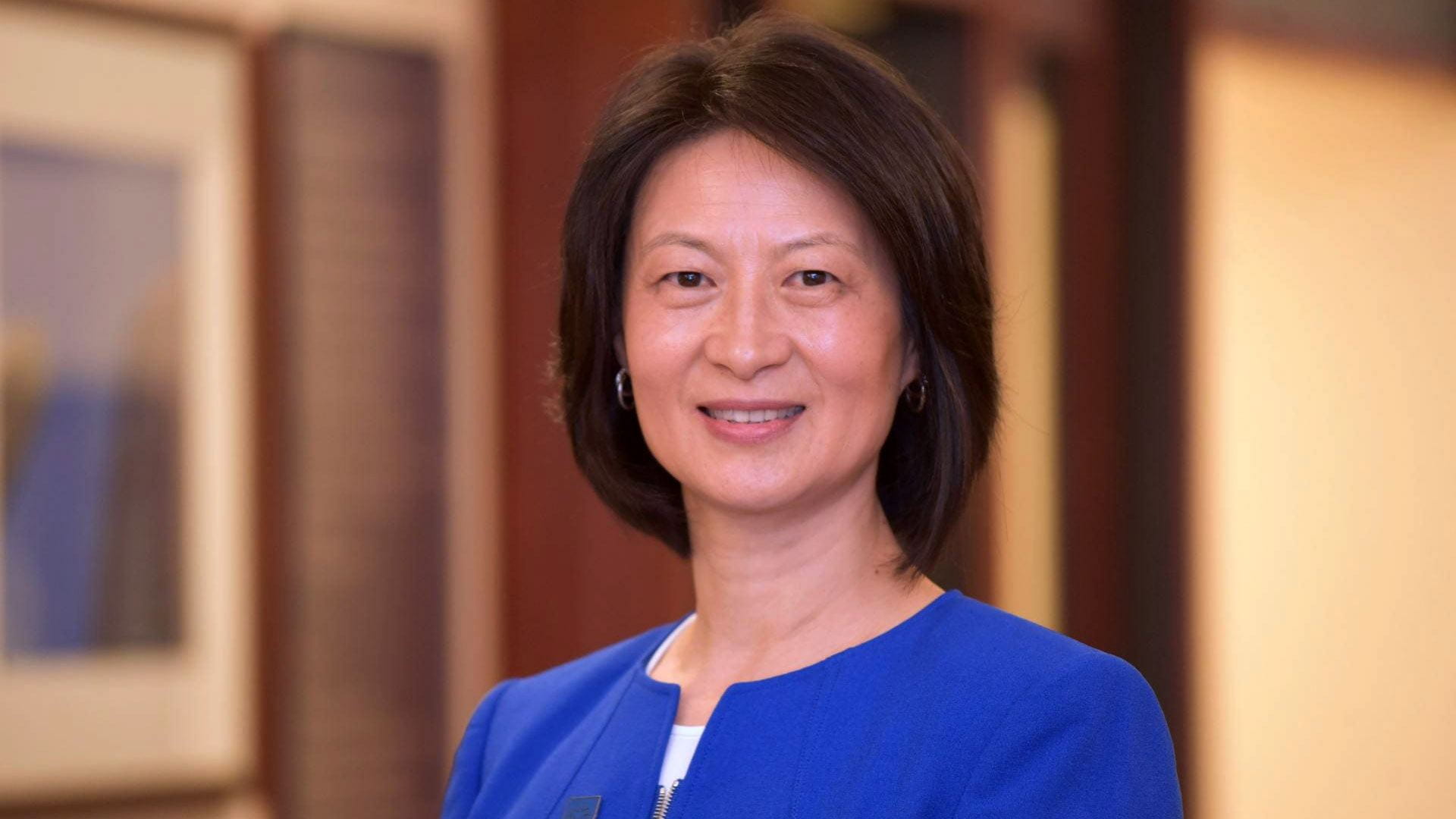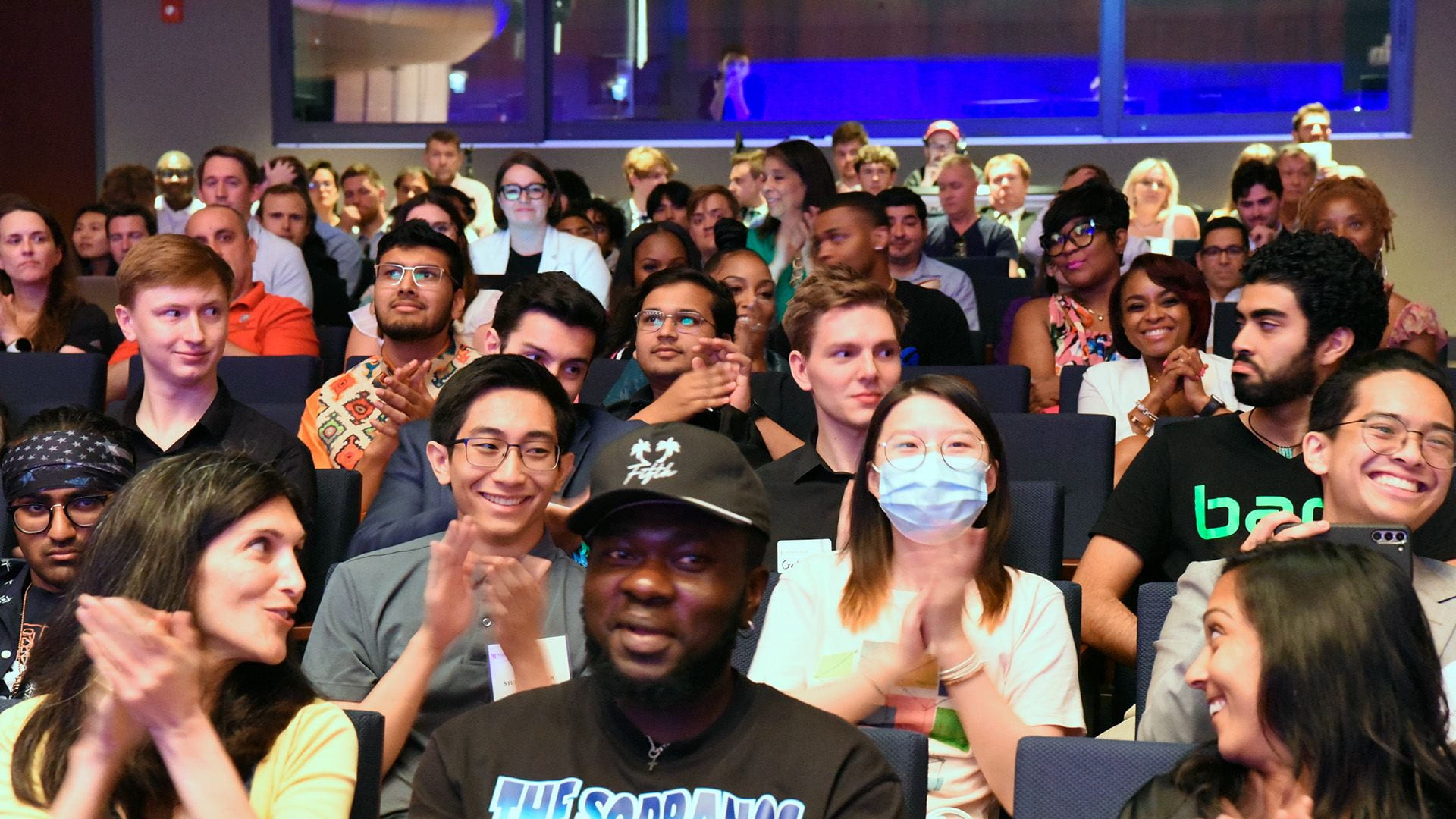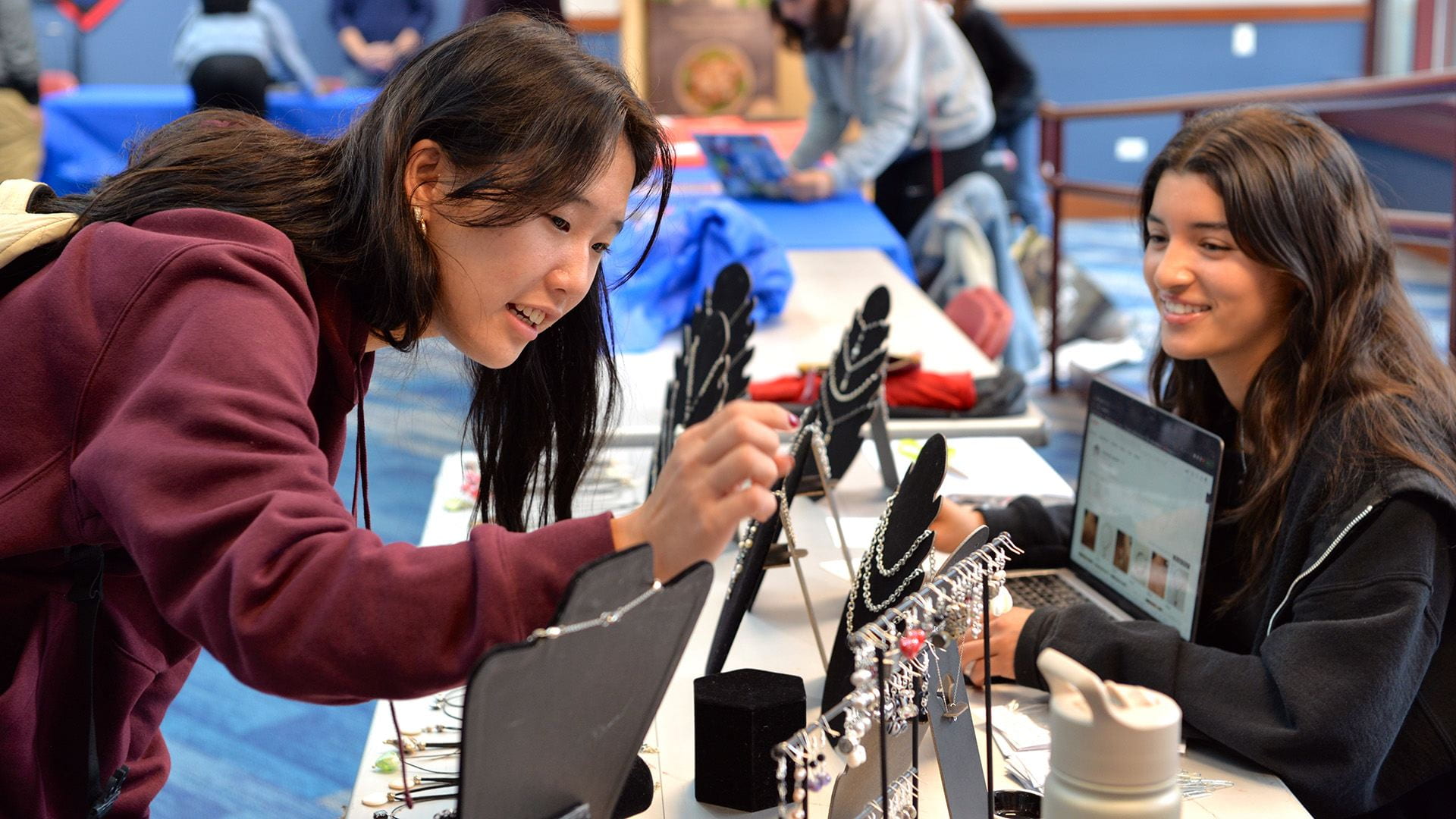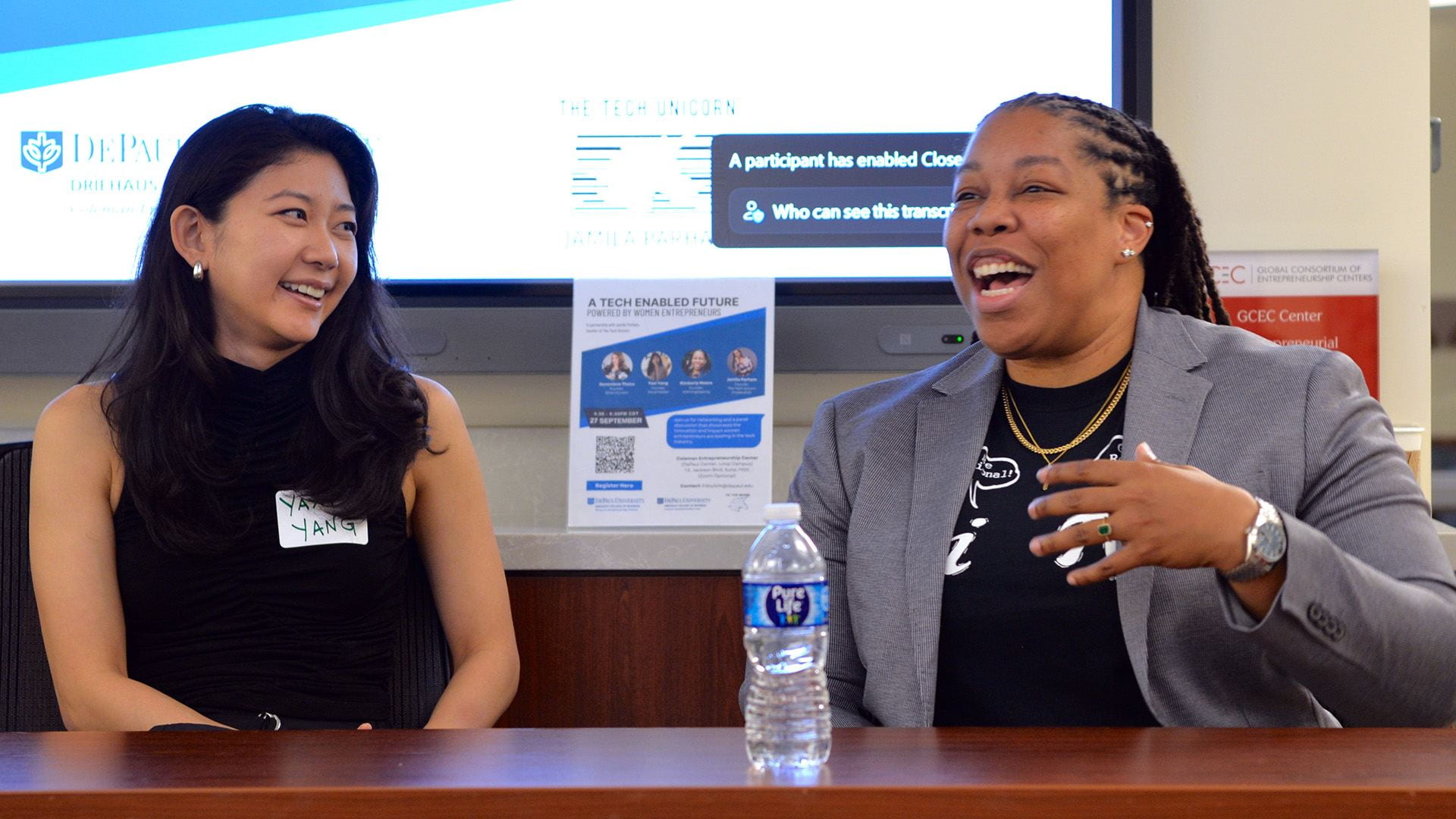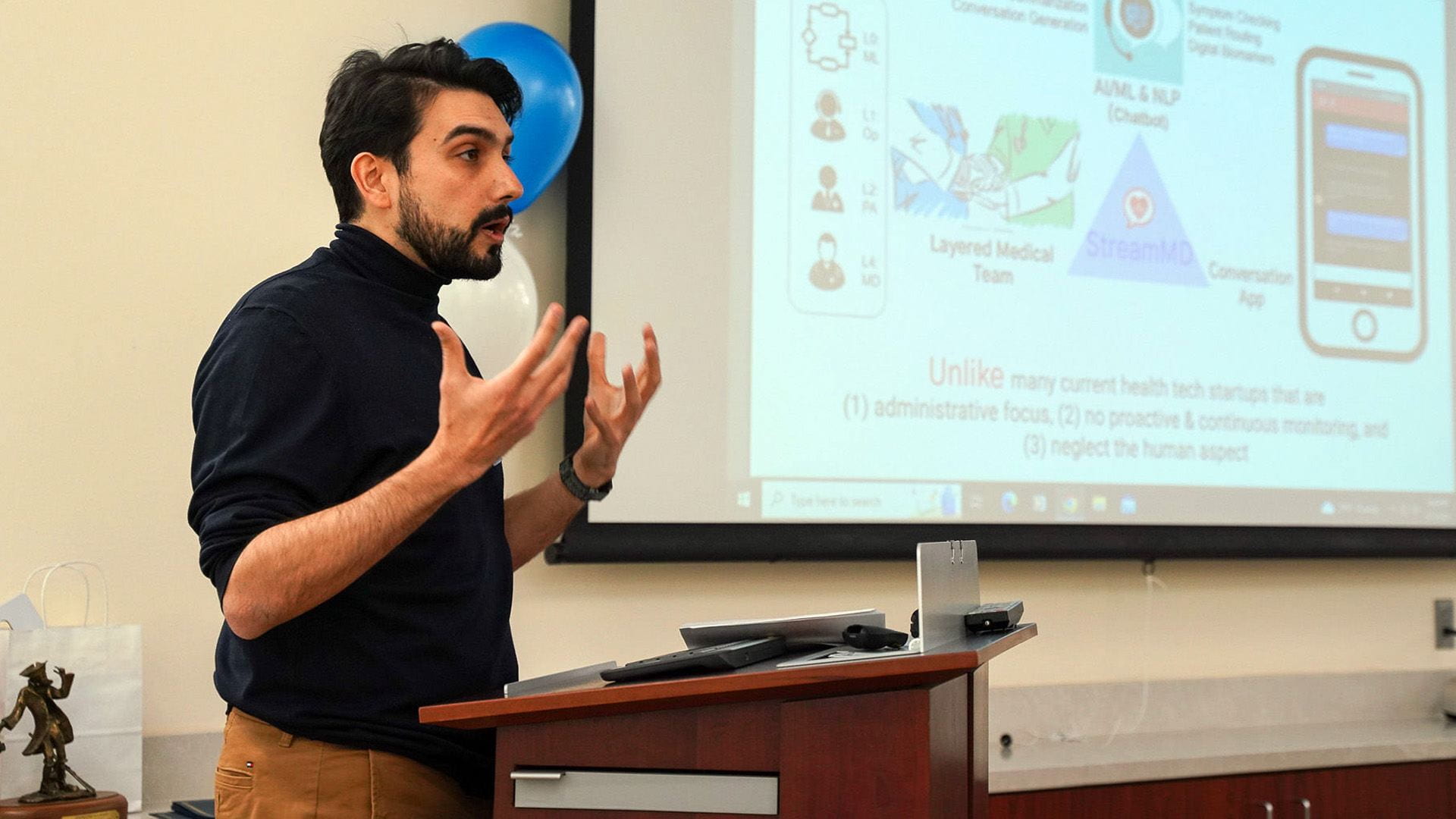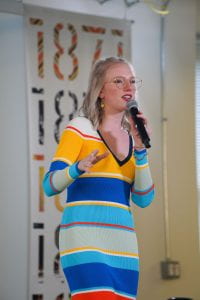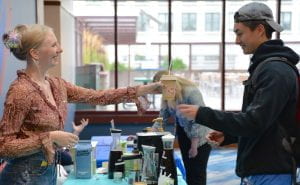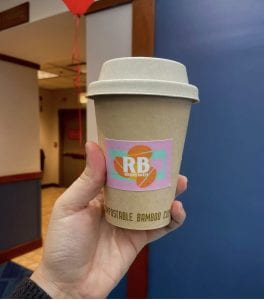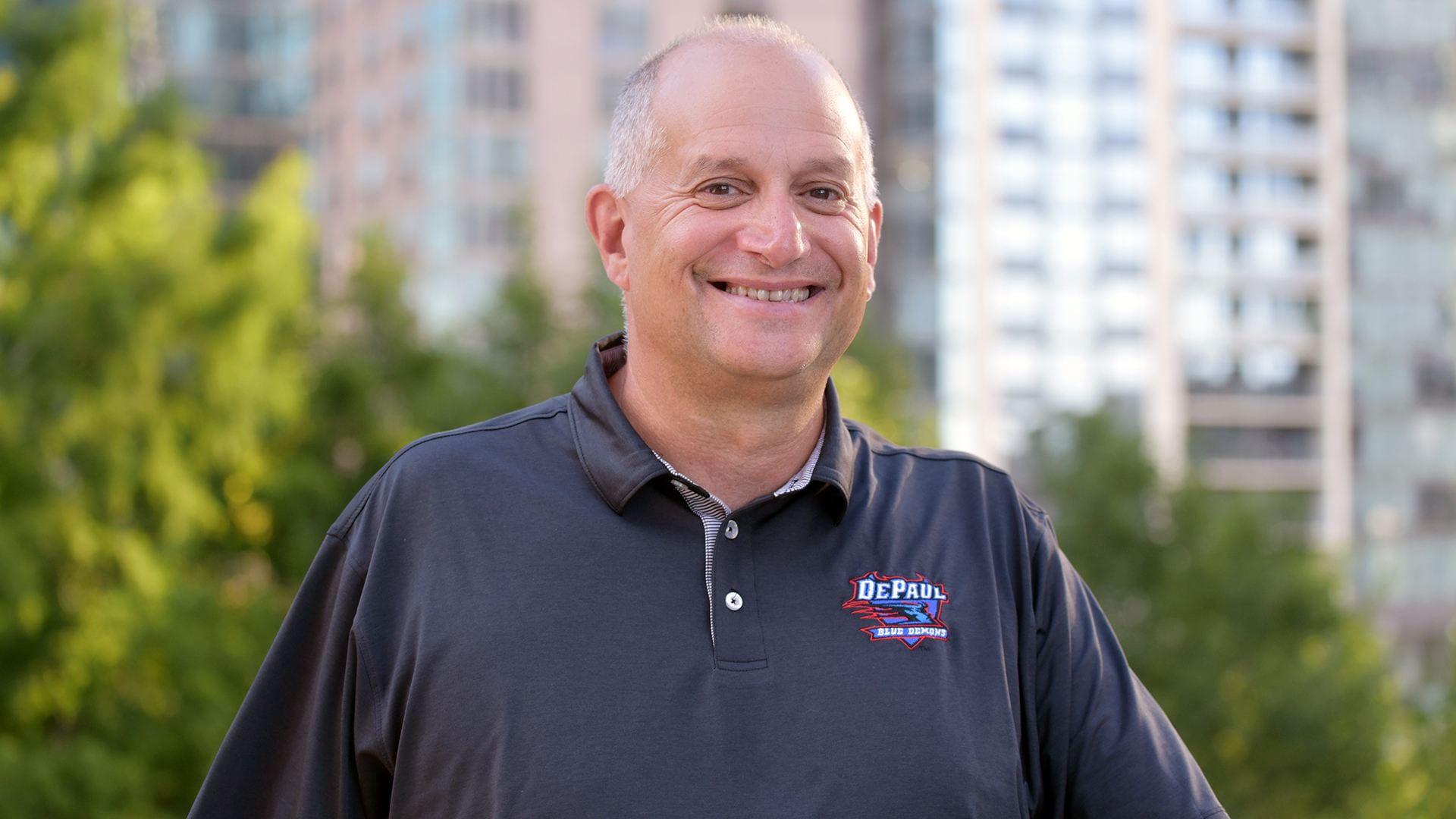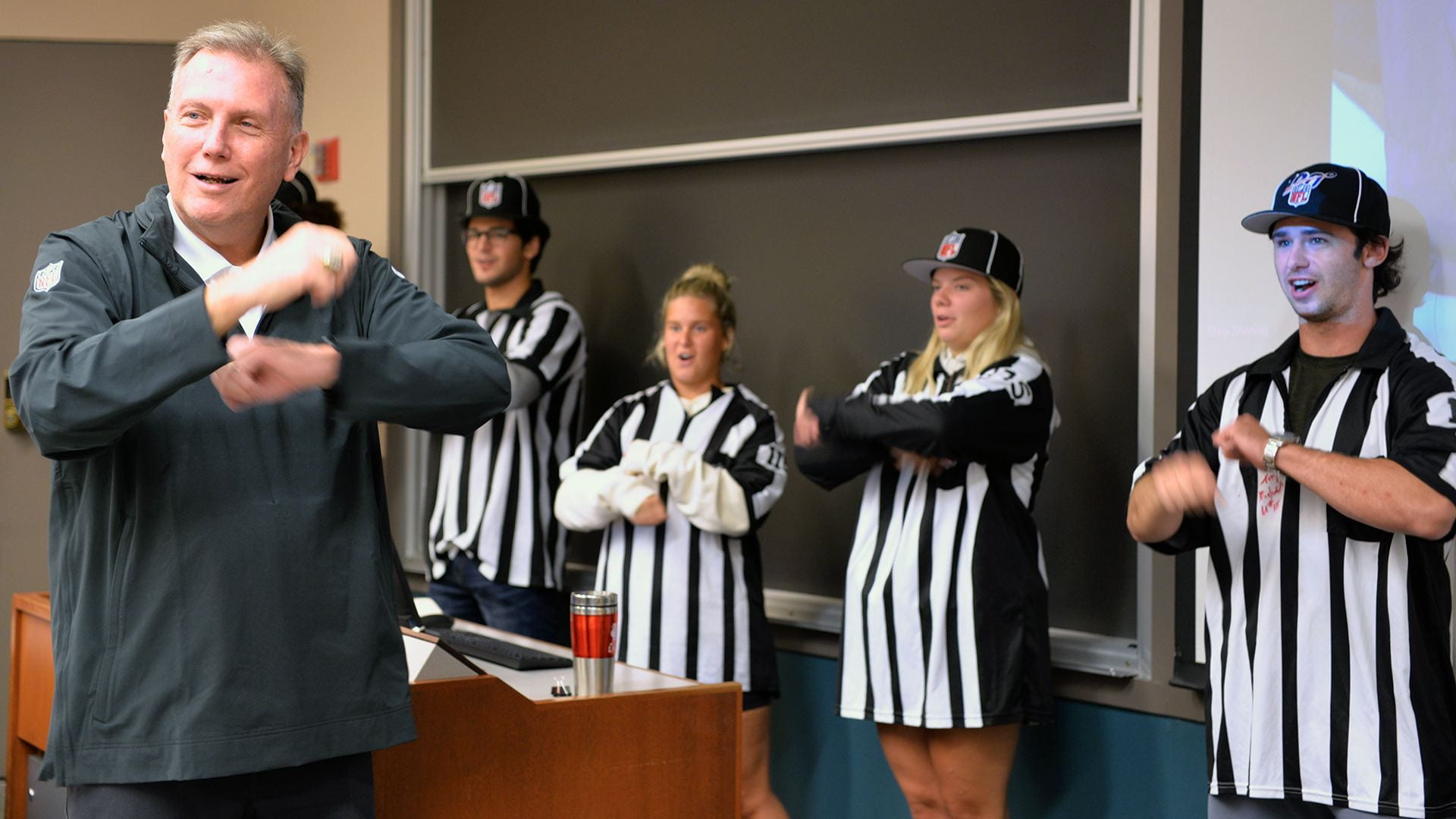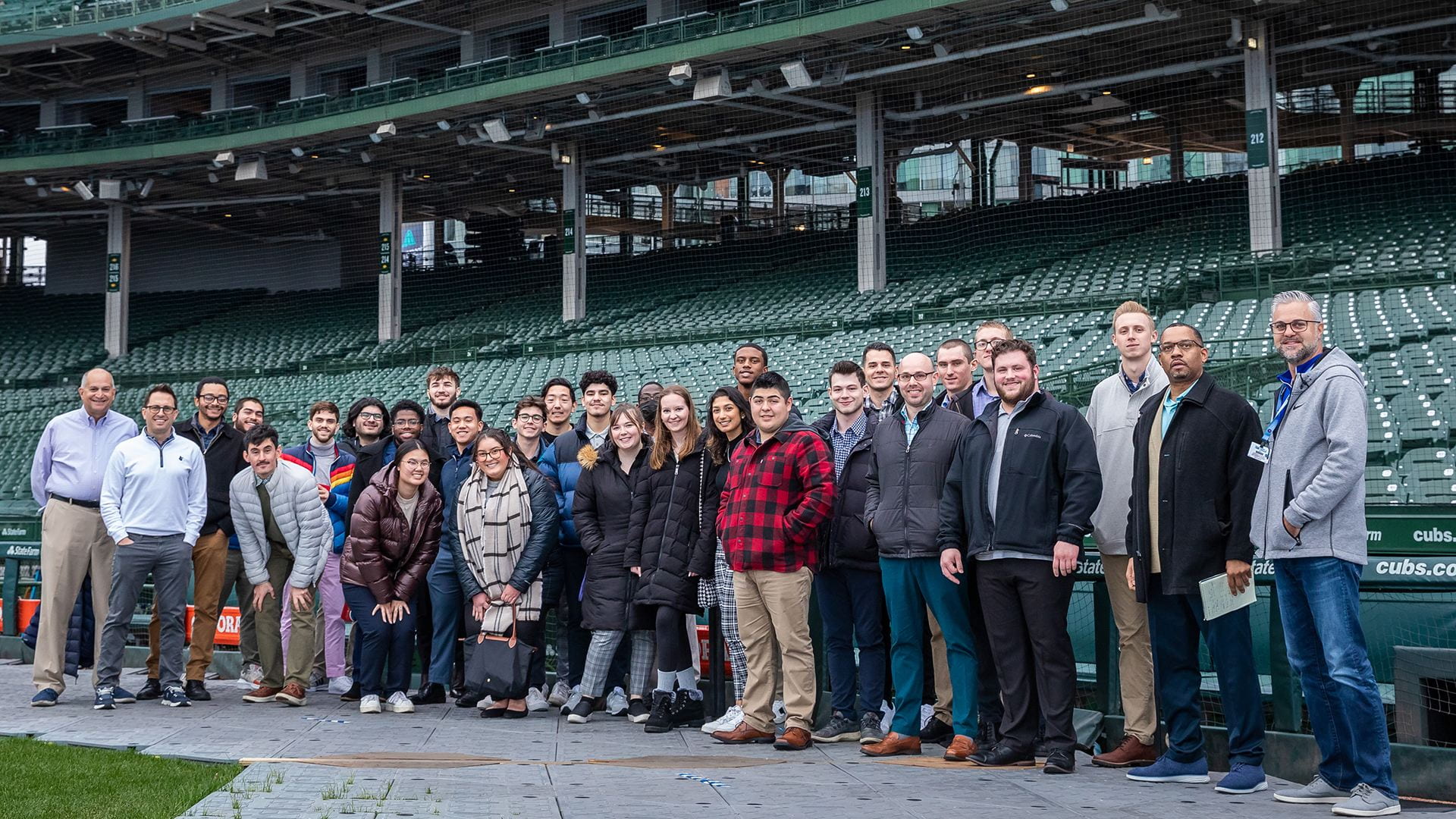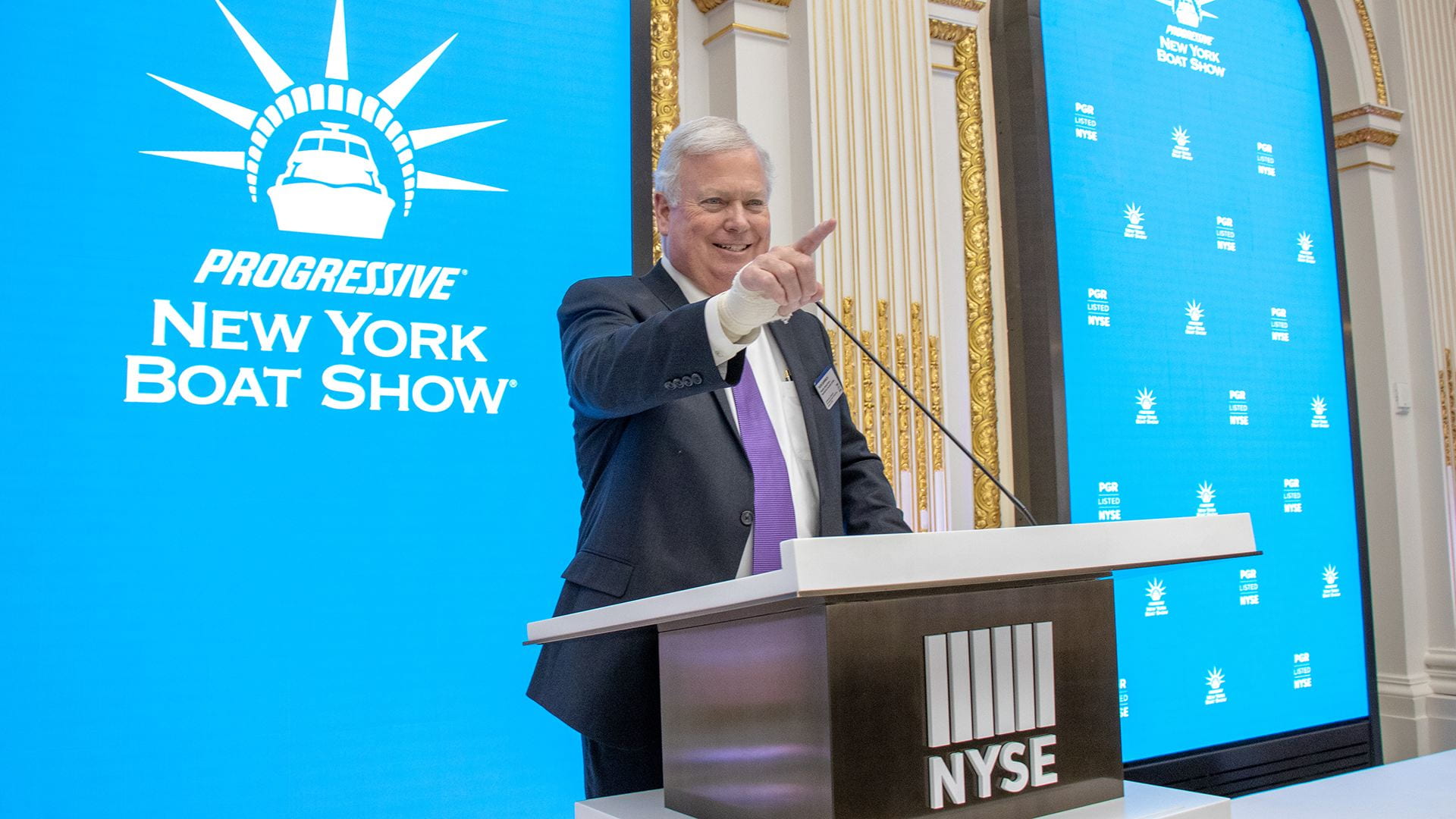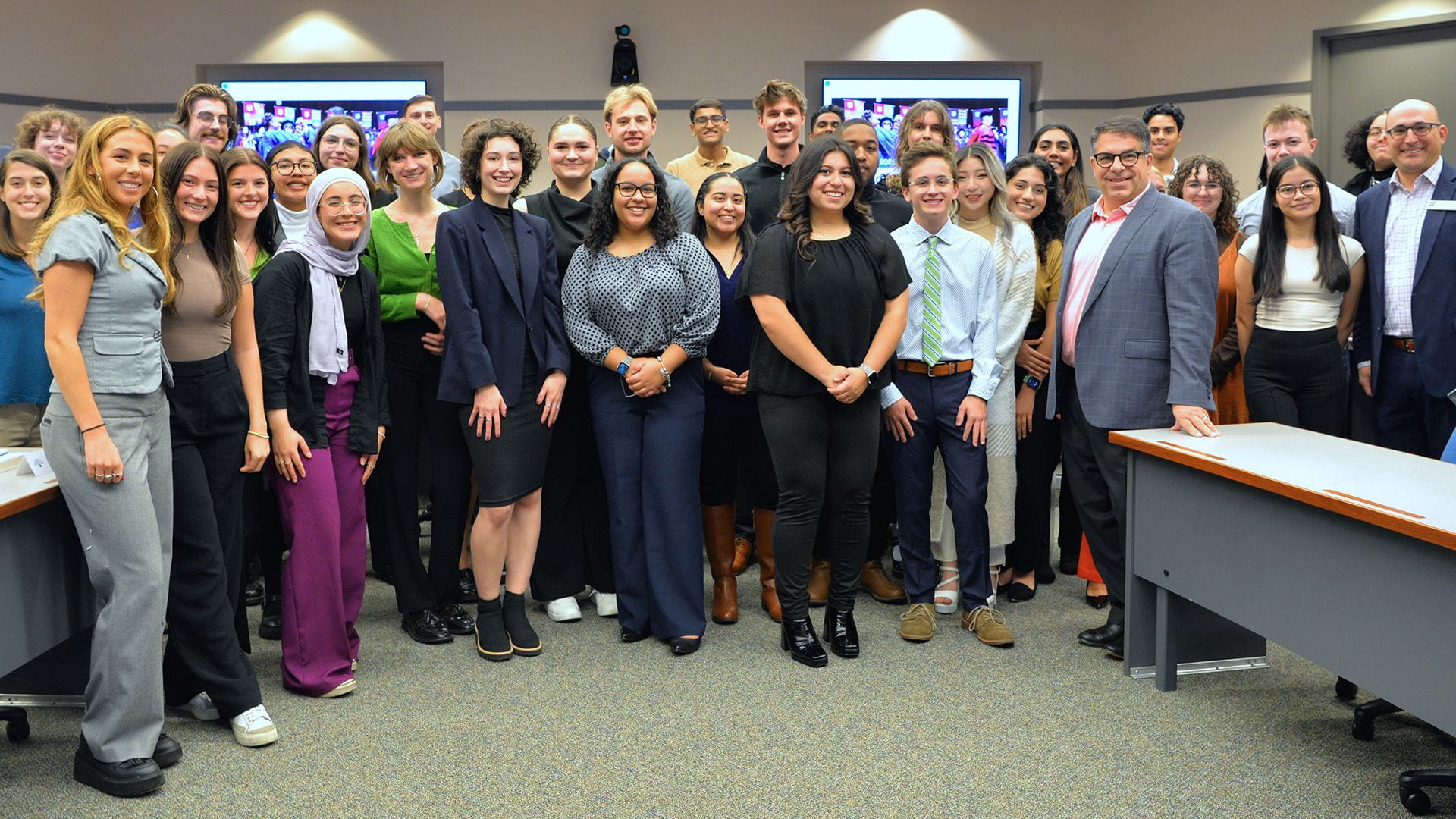The retired FBI agent, corporate executive, author and philanthropist reflects on the educations he received — in school and outside of it
By Meredith Carroll

Now retired, Sean McWeeney (BUS ’61) lives a quiet life in Reston, Virginia, with his wife, Millie Cronin. They are both widowers; in fact, they met through Cronin’s first husband, a coworker of McWeeney’s. They volunteer for their local parish. They spend time with their family. They support causes close to their hearts, including DePaul. Just this year, McWeeney established the McWeeney Family Scholarship Fund to help under-resourced students attend DePaul.
McWeeney’s life up to this point was anything but quiet. He served for decades in the FBI, where he played a central role in the capture of notorious Mob boss Carlo Gambino. He rose through the ranks to become the longest-serving section chief of the Organized Crimes division. After his retirement, he launched Corporate Risk International, a global security firm specializing in kidnapping and extortion cases. It’s a career so action-packed that, with the encouragement of his family and friends, he wrote a book about it, entitled “Up by the Bootstraps.”
Like many success stories, McWeeney’s life attests to the ever-shifting balance between luck and hard work. It’s a story about being in the right place at the right time, but it’s also about having the right skills to rise to the moment. It’s a story about education, broadly defined: the kind of education you get from the people and environments around you. The kind of education you make out of what you are given.
McWeeney’s education would ultimately take him around the world. But it began right here in Chicago.
A Chicago Childhood
It has been decades since McWeeney lived in Chicago – a lifetime, even. But his roots are still evident. He speaks with a faint Chicago accent. He talks about himself with a distinctively Chicagoan strain of understatement: humble yet direct; self-effacing yet also, justifiably, proud.
McWeeney was born in 1938 to two Irish immigrants. Among the kids in his West Side neighborhood, he can’t recall knowing anyone whose parents were born in the U.S. Being in that environment at that time was an education – only McWeeney didn’t know it yet.
“I was a scrappy kid,” he recalls. “I had an unusual name for that time, and they made fun of me for it.”
It was easy to fall into trouble.
“A lot of people I grew up with became Mafia,” McWeeney says. “We had one person we knew quite well whose brother was killed by the Mafia.”
It was an environment that offered up two ways to navigate the world.
“You either win one way, the good way,” McWeeney recalls, “or you win the bad way. And I happened to be lucky in who I turned out to be. Going to a school like DePaul certainly helped – and so did having good parents. I was lucky in that regard.”
The West Side gave McWeeney one kind of education. In school, he received another.
For high school, he earned a four-year scholarship to St. Ignatius College Prep. It promised to be a pivotal moment for McWeeney. But it lasted just two weeks.
McWeeney was kicked out after a fight with a boy who made fun of his name. He transferred to St. Mel’s, another Catholic school.
“St. Mel’s identified me as a bit of a thug,” he says. “They assumed that ‘this guy isn’t going to college. This guy won’t go much further because he’s a scrapper.’ That’s part of being from the West Side, I guess.
“Anyway,” McWeeney adds, with his trademark understatement, “I outdid their expectations.”
From DePaul to the FBI
Outdoing those expectations began in earnest when McWeeney enrolled in the College of Commerce at DePaul University.
At DePaul, McWeeney found his place.
Despite working a grueling overnight shift at the railroad switchyard off 35th and Pulaski, he was active in sports and in his fraternity. In his senior year, he was elected class president.
He also met his first wife at DePaul: the late Joan Hennessy, a fellow student. They were set up on a blind date. They would travel the world together, raise a family, and launch Corporate Risk International from their kitchen table.
When McWeeney looks back on his time at DePaul, it’s his good fortune that he stresses. The good fortune to have met Hennessy; the good fortune to receive an education that allowed his world to expand, equipping him with tools he’d need to earn his MBA and launch a second career as a successful entrepreneur. Good fortune — and the commitment to taking advantage of it.

From DePaul, McWeeney ventured out into the world. He joined the Navy as an officer candidate. He moved to Rhode Island, where he earned his MBA.
The MBA allowed him to stand out when he applied for his dream job as an agent at the FBI.
From day one, working in the FBI was its own kind of education. He lived in cities in distant corners of the U.S. He learned all he could – from the culture, and from agents who were stationed in these posts as discipline.
“The punished agents knew how to get the job done,” he writes in his memoir. They were also repentant, “eager to share their story and what they learned from it.”
In the summer of 1969, McWeeney and his family landed in New York, where he was eventually assigned to the Gambino Squad.
Thanks to his upbringing, he was precisely the right man for the job.
“There were a lot of agents, believe me, who were a little leery of talking to the Mafia,” he recalls. “But when you grow up where I did, you just kind of learn to talk to them. I used to go right up to them – let them know who I was and what I wanted to know.”
He approached his work as a plain dealer: collected, straightforward, respectful. In McWeeney’s hands, even the arrest of Gambino was understated.
Gambino’s wife and children were with him, McWeeney recalls, when McWeeney and his agents pulled him over near his home in Brooklyn.
“He seemed surprised,” McWeeney writes, “but consistent with his typical demeanor, he remained calm and gave us no trouble during the arrest.”
The Capstone of a Remarkable Career
The Gambino arrest, like McWeeney’s years at DePaul, was a turning point in a much longer story. From there, he would go on to senior leadership positions in the Bureau. He would found a successful, global company.

But if you ask McWeeney, it’s those early days as an FBI agent that stand out.
“If anyone ever asks what I did, my first reaction is to say I was an agent,” he says. “I was a top executive, of course. But I’m very, very proud of the fact that I was an FBI agent.
“It was the first time my father ever said he was proud of me – and I heard that from secondary sources,” he recalls. “My dad was soft-spoken, a tough guy. All he did was work, work, work. For him to have said that meant a lot.”




